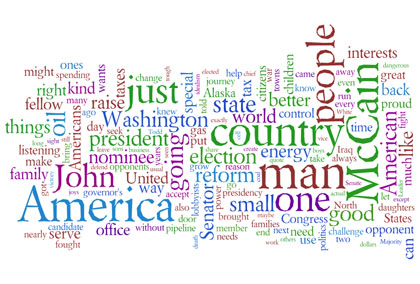Via “David Levine”:http://www.againstmonopoly.org/index.php?perm=1253, it appears that George Mason University is “being sued”:http://www.courthousenews.com/2008/09/17/Reuters_Says_George_Mason_University_Is_Handing_Out_Its_Proprietary_Software.htm for over 10 million dollars by the owner of EndNote (which happens to be Thomson-Reuters).
The complaint states, “Dr. Daniel J. Cohen, Associate Professor, Department of History and Art History, and the director of GMU’s Center for History and New Media, developed Zotero, which is a freely distributable, open-source software based research tool that allows users to gather, organize and analyze sources, including citations, and freely share the results with others.” The Center for History and New Media release “a new beta version of Zotero to the general public” on July 8. Reuters adds, “A significant and highly touted feature of the new beta version of Zotero, however, is its ability to convert – in direct violation of the License Agreement – Thomson’s 3,500 plus proprietary .ens style files within the EndNote Software into free, open source, easily distributable Zotero .csl files.”
Now, I’m obviously not an intellectual property lawyer (fwiw the “Wikipedia article”:http://en.wikipedia.org/wiki/Reverse_engineering on reverse engineering, which may or may not be reliable but is certainly more reliable than me, suggests that suits over interoperability are of dubious legal merit). But I am an academic, and thus part of EndNote’s core end-user market. And I say that, regardless or not of whether it’s legal, this is a bullshit move on Thomson-Reuters’ part. There are a lot of academics out there who have used EndNote in the past and created styles for the journals that they submit to etc. EndNote’s owners are clearly worried that these academics will be tempted to move their styles from EndNote to a software package which in my view (and I’ve used both) is clearly superior. This is a no-brainer. There is _no significant innovation or value-added_ to EndNote’s specific file format. Nor is there reason to believe (given the existence of Zotero) that protecting this file format and EndNote’s purported intellectual property rights over it will encourage innovation in this particular marketplace. On the broad social merits, Reuters’ attempted shakedown is indefensible.
Nor is this as trivial an issue for academics as it might seem. As Scott has “suggested”:http://insidehighered.com/views/2007/09/26/mclemee “in the”:https://crookedtimber.org/2007/09/26/zoteromania/ “past”:https://crookedtimber.org/2007/12/12/archival-zotero-fication-or-possibly-vice-versa/#more-6498 Zotero and projects like it are at the heart of an effort to bring something like the semantic web to academia. Zotero combines bibliographical database management with social tagging and other fun stuff – it is gradually becoming a platform through which academics can share metadata and other interesting things with each other. Which means that this battle is likely to have long term consequences in determining whether or not new forms of academic collaboration are likely to be controlled by academics themselves, or take place through some kind of commercially controlled intermediation, with all the forms of stupidity that are likely to go along with that.
For my part, I’m going to refuse to use Reuters’ software in future, strongly discourage graduate students from buying EndNote, and try to get this message out to my colleagues too (at least those of them who aren’t using Zotero or some BibTex client already). If I taught any classes where Thomson printed relevant textbooks, I would be strongly inclined not to use these texts either. I encourage you to do the same (and, if you’re so minded, to suggest other possible ways of making it clear to Reuters that this kind of behaviour is intolerable in the comments). People have argued that the music industry has screwed up badly by suing its customers – whether that’s true or not, makers of academic bibliography software should be told that suing universities for what appear to be entirely legitimate actions is not likely to do their reputations any good.
NB- post corrected shortly after publication for bone-headed error.



